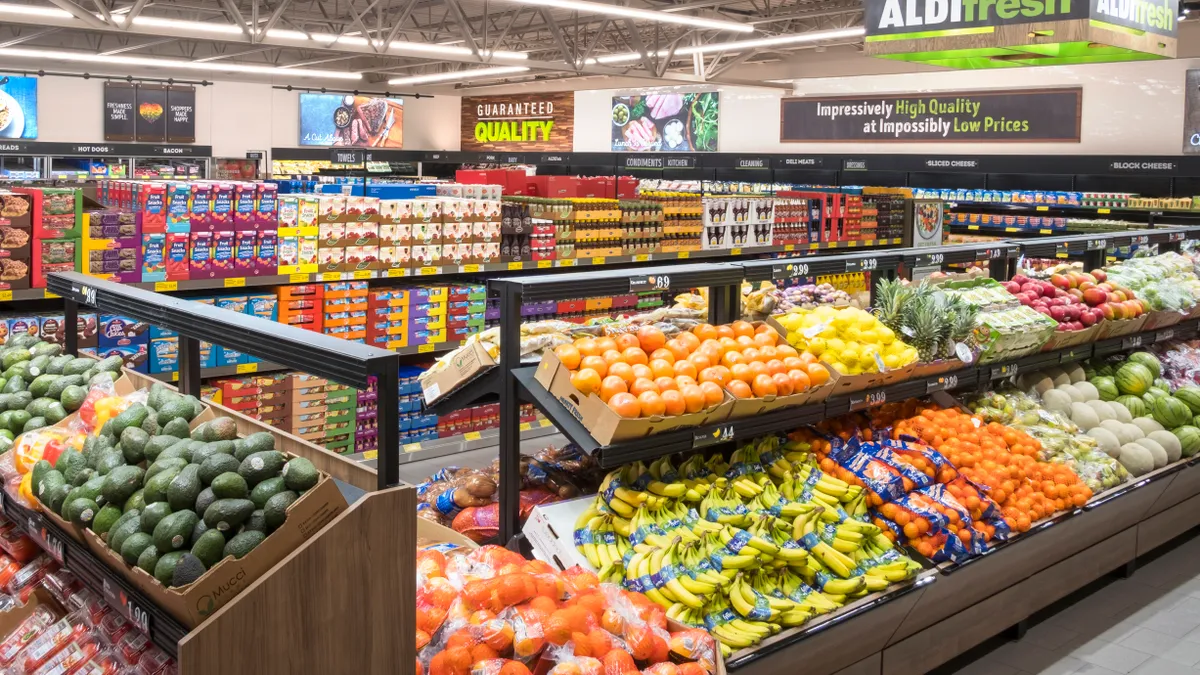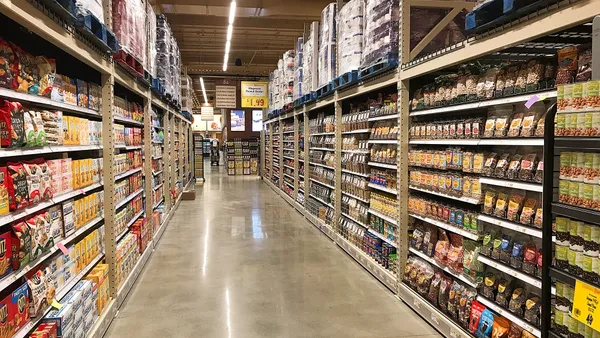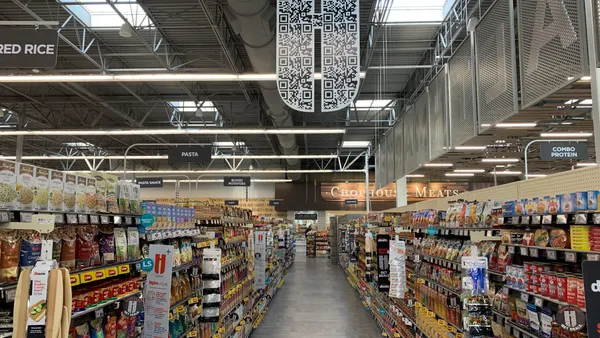Dive Brief:
- Aldi U.S. has published an open letter from CEO Jason Hart promising its customers that the discounter will continue to offer the lowest prices possible as the grocery industry feels effects from the COVID-19 pandemic.
- Hart points to Aldi’s "innovative suppliers" and the company’s "simple and efficient" approach to retail that allow it to pass along savings to shoppers on a daily basis. He also notes that access to affordable groceries is more important than ever.
- The discounter's letter comes as food prices continue to rise in the U.S. along with unemployment. According to the Bureau of Labor Statistics, more than 20 million Americans lost their jobs in April, raising the unemployment rate to 14.7%.
Dive Insight:
The grocery industry has seen retail prices spike recently as COVID-19 shakes up the supply chain and retailers try to manage inventory and the needs of worried shoppers.
According to recent data from the Bureau of Labor Statistics, the price of groceries overall increased 2.6% from March to April. Eggs went up 16%, while some cuts of pork and beef went up 10%. Meat departments are facing heightened challenges with the disruption to packing and processing plants during the pandemic.
Aldi isn’t the only retailer trying to keep its customers calm when it comes to pricing concerns. Massachusetts-based Big Y just announced plans to freeze prices on more than 10,000 products through July 1, according to local reports. Some items on the list include chicken, peanut butter, mac and cheese, strawberries and cheese.
On the supplier side, Tyson Foods recently said it would lower some of the prices it charges supermarkets for beef products by as much as 20 to 30%, with the end goal of maintaining consumer demand.
Price perception is integral to Aldi’s success. For several years in a row, the company has been dubbed the “value leader” in a U.S. consumer survey from Market Force Information. Its wide variety of trendy yet wallet-friendly private label products has built a loyal customer base, and recent remodels to brighten up stores and bring in more fresh food has boosted its “no-frills” image among Americans.
People are showing keen awareness of pricing issues in the industry. New research from McKinsey shows 20% of shoppers have switched to a new primary store amid COVID-19, with more affordable groceries being one of the reasons in addition to out-of-stock and e-commerce issues.












